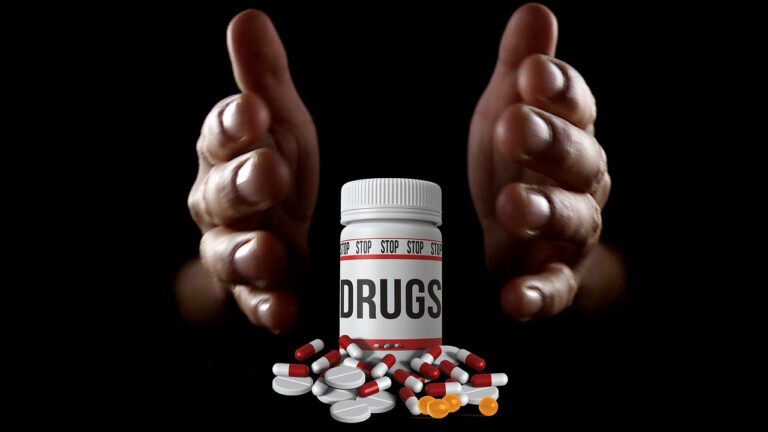The Role of Medication Assisted Treatment (MAT) in Addiction Recovery
Introduction
Medication assisted treatment (MAT) is an option you may have recently heard of when it comes to addiction. MAT is a widely discussed and debated approach to treating substance use disorders. Here at Oasis, MAT is used in some personalized treatment plans and plays a crucial role in some individuals’ recovery. Join me as we explore the various aspects of MAT, including;
- Understanding Addiction
- What is the importance of MAT during recovery?
- The science behind it
- Common misconceptions
Are you still trying to understand what MAT actually is? We recommend this article section by SoberNation.
Understanding Addiction
The scientific basis for MAT is rooted in the understanding of addiction.
- Addiction is recognized as a mental illness by professionals. It’s crucial for individuals battling addiction to realize that it is not a result of moral failure or a flaw in their character.
- Addiction can seriously disrupt your life by affecting your physical and mental health, straining relationships, impacting work and finances, and leading to risky behaviors. Recognizing these challenges is crucial for seeking treatment and support.
- The struggle with addiction is closely tied to the complex chemistry of our brains. When someone uses drugs or alcohol, it makes them feel really good because it triggers the brain to release chemicals that make them feel happy. But over time, the brain gets used to this and starts producing fewer of these chemicals naturally, which can lead to addiction. As a result, the substance doesn’t provide the same level of pleasure anymore, leading the person to use more of it to achieve the desired effect. This cycle can lead to addiction, as the brain becomes reliant on the substance to feel good.
This condition impacts the operation of the reward and motivation systems in your brain. MAT deals with this fundamental neurobiological problem, enabling people to recover and take charge of their lives again. It is important for individuals struggling with addiction to learn to love and forgive themselves; they are not at fault for their addiction.
The Importance of Medication Assisted Treatment In Recovery
There are several reasons why medication-assisted treatment can be beneficial during recovery. It can help an individual maintain control and regain their lives back for several reasons, such as:
- Reduces Cravings and Withdrawal Symptoms: MAT helps reduce cravings and eases withdrawal symptoms.
- Restores Neurological Balance: Addiction disrupts the brain’s balance of reward and pain systems. Medication-assisted treatment (MAT) uses FDA-approved medications to work with the brain’s opioid receptors. This allows the medication to restore this balance, reducing the harmful effects of substance abuse.
- Improves Chances of Long-Term Recovery: Medication-assisted treatment (MAT) can significantly improve a patient’s chances of overcoming addiction. MAT helps reduce physical symptoms so people can focus on other parts of recovery. This includes counseling and therapy. Both are important for dealing with the emotional and psychological aspects of addiction.
- Reduces Risk of Relapse: MAT can help individuals gain control over their addiction and reduce the risk of relapse.
- Promotes Overall Health: MAT can also increase overall physical and mental health, making it a crucial component of a holistic approach to addiction treatment.
“By combining medication with therapy and counseling, MAT addresses the physical and psychological aspects of addiction. This powerful combination helps people regain control over their lives, manage their cravings, and develop healthy coping skills.
Ultimately, MAT, within a holistic approach, paves the way for long-term recovery and improved overall well-being.” – RecoveryTeam.org
The Science Behind Medically-Assisted Treatment (MAT)
The science behind medications can be complex. However, we want to break it down into the main points you should know about while providing sources to back up your research and allow you to learn more independently.
- As mentioned above, it helps reduce cravings and withdrawal symptoms by regulating the brain’s chemistry.
- According to the CDC, it blocks the sedative and euphoric effects if relapse were to happen.
- For alcohol use disorder, MAT can also prevent relapse by making even small amounts of alcohol cause nausea and other unpleasant side effects.
- FDA-approved MAT medications interact with the same receptors in the brain as the abused substance in a controlled and safe manner. This allows patients to focus on both long-term and short-term goals without the threat of relapse constantly looming over them.
- It is proven to be effective in preventing relapses and overdoses, increasing focus on treatment, and improving patient survival, according to the Substance Abuse and Mental Health Services Administration (SAMHSA).
Connect With Us Now
Reach out to us now for immediate support, or let us know the best time to contact you through our confidential callback service. Your journey to healing is just a conversation away.
Principles of MAT
- Medication-assisted treatment (MAT) is an approach to treating substance use disorders that strives to promote healing and recovery. It is one evidence-based tool we use in our holistic approach to recovery.
- It utilizes FDA-approved drugs with counseling and behavioral therapies to offer thorough care.
- MAT is backed by extensive research, proving its effectiveness in aiding recovery and reducing overdose risk.
- Support and psychotherapy in Medication-Assisted Treatment (MAT) are important. They help patients learn to avoid drug use, make healthier lifestyle choices, and improve their problem-solving skills. This support also provides emotional help, addresses co-existing mental health issues, and helps improve personal relationships.
- Individualized treatment plans are crucial in treating substance use disorders. They care for each patient, meeting their needs and helping them improve in the long term. By monitoring things and making changes as needed, they ensure that the treatment works well.
A cornerstone of MAT is its ability to alleviate withdrawal symptoms and cravings, thereby reducing relapse risk. This integrated approach acknowledges the whole person, not merely the addiction. Making MAT a powerful tool in the fight against substance use disorders. Remember, every recovery journey is unique, and MAT supports each step towards sobriety.

Misconceptions
- Medication-assisted treatment (MAT) is a well-proven way to help people overcome addiction. Some people mistakenly think that MAT just swaps one addiction for another. In reality, MAT combines medications approved by the FDA with counseling and therapies to provide a comprehensive approach to treating substance use disorders.
- MAT is crucial in addiction recovery. It alleviates withdrawal symptoms and reduces cravings, allowing individuals to focus on their recovery journey. It also improves patient survival rates, increases retention in treatment programs, and reduces illicit opiate use and related overdose deaths.
Stigma
Despite how helpful it is, there’s still a lot of negativity around MAT. A lot of this comes from the idea that addiction is a moral problem instead of a health issue. Misunderstandings about medication-assisted treatment (MAT) can prevent people from getting the support they need and can also discourage healthcare providers from offering it. It’s crucial to address these misunderstandings and tackle the negativity so that individuals dealing with addiction can access the assistance and treatment options they require. Remember, recovery is a journey, and MAT is an important tool in navigating that path in recovery and treatment of opioid use disorder.
How Stigma Hurts Those In Need
Stigma can lead to a pattern of negativity that results in feelings of detachment, powerlessness, and embarrassment. According to Utah State University, a study was done on 997 people to see how stigma around MAT affected the treatment of those in need:
- “One-third of participants believed that “medication-assisted-treatment. substitutes one addiction for another.”
- One-third refused to be seen by a physician who is treating patients with MAT to overcome their OUD.
- Around 40% of participants concluded that medications used in MAT are only “somewhat effective.”
- One-fourth believed that doctors should have the right to refuse treatment for individuals with OUD.”
How Can We Stop Stigma
Understanding the negative cycle of stigma can help you do things to help more people seek the help they need. The National Academies of Sciences, Engineering and Medicine has put out an infographic to help better understand this vicious cycle.
Things you can do:
- Educate yourself and your loved ones by visiting reputable resources
- Monitor your language surrounding addiction (Changing Stigma Language provided by Utah State University)
- Becoming understanding of your disorder or the people around you with the disorder
- Don’t shame or blame. Use positive reinforcement.
Conclusion
Medication-assisted treatment (MAT) is a comprehensive way to help people overcome addiction. It involves using medications approved by the FDA, counseling, and behavioral therapies. This approach addresses both the physical and emotional aspects of addiction and can help people stay on the path to recovery for the long term. MAT isn’t about substituting one drug for another; it’s about using safe, controlled medications to manage withdrawal symptoms and cravings. This approach has the potential to help people with addiction restore balance to their lives, allowing them to take back control of their health, relationships, and overall well-being. MAT is backed by evidence and provides hope in the fight against addiction.
According to the Substance Abuse and Mental Health Services Administration (SAMHSA), MAT is effective in treating opioid addiction, with success rates ranging from 40% to 60%.
If you or a loved one is struggling with addiction, don’t hesitate to reach out to us at Oasis Recovery Center to start your journey. Medication-assisted treatment could be the key to your recovery journey. Contact us today to learn more about our individualized treatment plans and how we can help you reclaim your life from addiction. Remember, recovery is a journey, and every journey begins with a single step. Take that step with us today.






